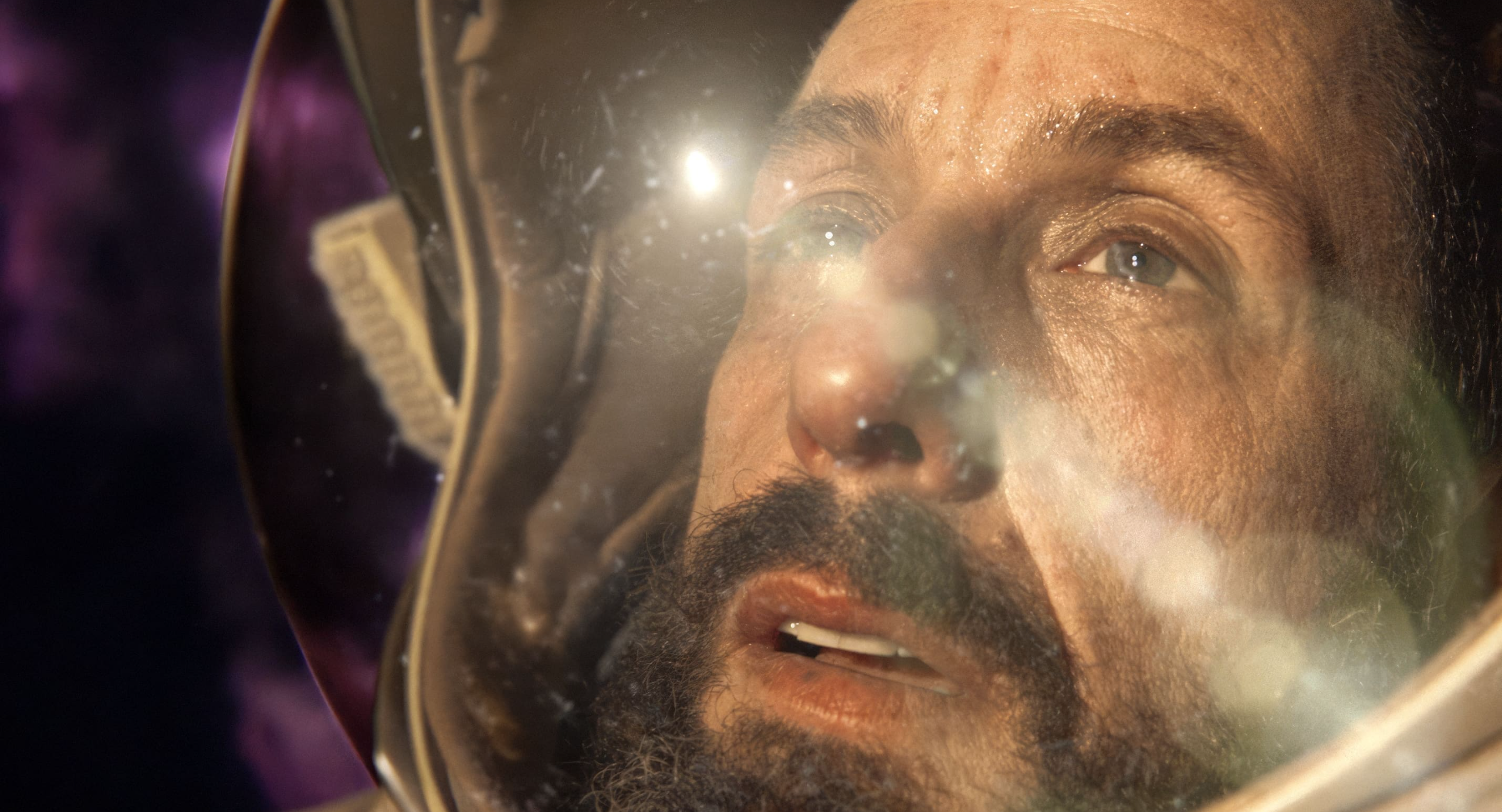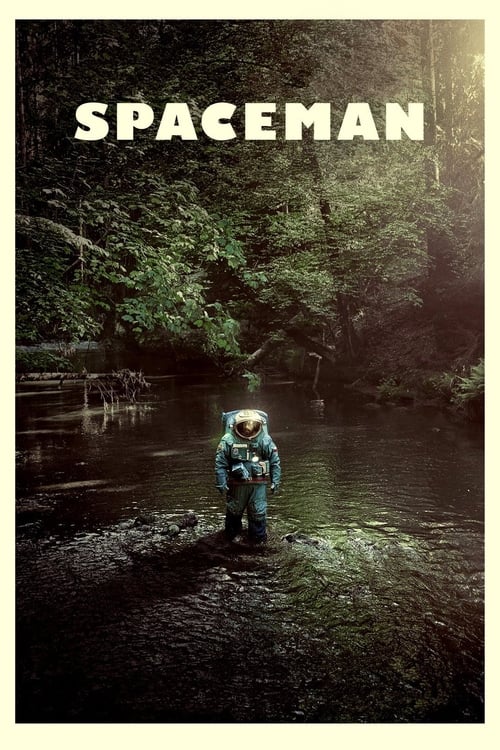Spaceman – Film Review
Published March 3, 2024

Johan Renck‘s Spaceman, adapted from Jaroslav Kalfař‘s 2017 novel Spaceman of Bohemia, embarks on a celestial journey aiming to explore not just the vast unknowns of the universe but also the intricate labyrinth of human emotion and relationships. While its premise promises a blend of sci-fi intrigue and profound drama, the execution unfortunately meanders, resulting in a film that’s as disoriented as its lead character. The star-studded cast, led by Adam Sandler and Carey Mulligan, delivers commendable performances but struggles against a script that doesn’t quite achieve liftoff.
The plot centers on Jakub Procházka, portrayed by Adam Sandler, a Czech astronaut sent on a pioneering solo mission to investigate the Chopra cloud, a mysterious cosmic phenomenon. The film ambitiously attempts to navigate the complex interstellar and interpersonal dynamics of Jakub’s life, emphasizing his isolation and longing for connection with his estranged wife, Lenka, played by Carey Mulligan. However, it stumbles in translating the emotional gravity and psychological depth of its source material onto the screen, often sacrificing coherence for artistic abstraction.
As Jakub’s loneliness intensifies, he encounters Hanuš, a telepathic extraterrestrial spider voiced by Paul Dano, aboard his spacecraft. Hanuš seeks to understand humanity through Jakub’s experiences and memories, setting the stage for what could have been a profound exploration of the human condition. Yet, the interactions between Jakub and Hanuš, meant to be the heart of the film, often feel forced and lacking the emotional resonance necessary to fully engage the viewer. Dano’s vocal performance is one of the film’s highlights, bringing warmth and curiosity to the character of Hanuš. However, the CGI representation of Hanuš fluctuates in quality, at times pulling the viewer out of the immersion the narrative desperately seeks to achieve.
Adam Sandler’s casting as Jakub is a double-edged sword. While Sandler has proven his dramatic capabilities in films such as Uncut Gems, his performance in Spaceman oscillates unevenly between genuinely affecting and awkwardly out of place. The film’s heavy reliance on Sandler to carry the emotional and philosophical weight of the story exposes its structural weaknesses, particularly in its pacing and narrative cohesion. Carey Mulligan, as Lenka, delivers a nuanced performance that, unfortunately, is constrained by the limited development of her character. The story doesn’t provide enough context or screen time for Lenka’s perspective, leaving her role feeling underutilized and her relationship with Jakub underdeveloped.
The film’s visual presentation and special effects are a mixed bag. While some sequences, particularly those depicting the vastness of space and the ethereal beauty of the Chopra cloud, are visually stunning, others suffer from apparent budgetary constraints that hinder the overall aesthetic ambition. Johan Renck’s direction strives for a lyrical, contemplative tone but often ends up meandering, losing sight of narrative momentum and clarity.
The screenplay, penned by Colby Day, ambitiously tackles themes of isolation, redemption, and the human need for connection. However, it struggles to balance the sci-fi elements with the deeper emotional and philosophical inquiries it poses. The dialogue, aiming for poetic depth, sometimes lands with a thud, hampered by its own gravitas. The film’s climax, set within the enigmatic Chopra cloud, seeks to provide a cathartic resolution but instead leaves many thematic threads frustratingly unresolved.
Despite its shortcomings, Spaceman is not without its merits. The film’s ambition, both in its thematic aspirations and its visual storytelling, is commendable. When it does manage to align its narrative, performances, and visuals, it achieves moments of genuine beauty and emotional resonance. Moreover, the film’s exploration of the fragility of human relationships set against the backdrop of the infinite cosmos is a laudable endeavor.
Spaceman reaches for the stars but ultimately fails to fully grasp the thematic depth and narrative coherence it strives for. It’s a film that oscillates between moments of genuine potential and segments of disheartening underachievement. While its performances, particularly by Paul Dano, and occasional visual splendor make it worth watching for some, others may find it an unsatisfying journey through both space and the spectrum of human emotion. As such, Spaceman secures its place not among the stars, but rather in the vast, undefined space between success and failure.
